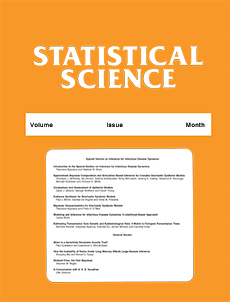Abstract
Doubly robust estimators are a popular means of estimating causal effects. Such estimators combine an estimate of the conditional mean of the outcome given treatment and confounders (the so-called outcome regression) with an estimate of the conditional probability of treatment given confounders (the propensity score) to generate an estimate of the effect of interest. In addition to enjoying the double-robustness property, these estimators have additional benefits. First, flexible regression tools, such as those developed in the field of machine learning, can be utilized to estimate the relevant regressions, while the estimators of the treatment effects retain desirable statistical properties. Furthermore, these estimators are often statistically efficient, achieving the lower bound on the variance of regular, asymptotically linear estimators. However, in spite of their asymptotic optimality, in problems where causal estimands are weakly identifiable, these estimators may behave erratically. We propose new estimation techniques for use in these challenging settings. Our estimators build on two existing frameworks for efficient estimation: targeted minimum loss estimation and one-step estimation. However, rather than using an estimate of the propensity score in their construction, we instead opt for an alternative regression quantity when building our estimators: the conditional probability of treatment given the conditional mean outcome. We discuss the theoretical implications and demonstrate the estimators’ performance in simulated and real data.
Citation
David Benkeser. Weixin Cai. Mark J. van der Laan. "A Nonparametric Super-Efficient Estimator of the Average Treatment Effect." Statist. Sci. 35 (3) 484 - 495, August 2020. https://doi.org/10.1214/19-STS735
Information





